This course teaches about the need of reducing the levels of consumption and the mainstream ways of purchasing and using products, food, energy etc. Sustainable living is a lifestyle that attempts to reduce an individual’s or society’s use of the Earth’s natural resources. Many people are aware of the importance of their consumption choices and care about environmental issues. However, most of them do not translate their concerns into concrete actions when purchasing goods and services.
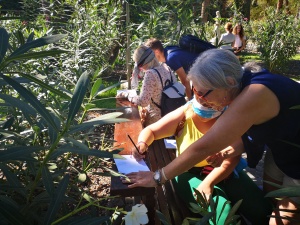
The participants to this course will reflect on how they can make concrete changes in their own lifestyles and change their consumption habits in order to be better equipped to teach environmental sustainability to their students. Through a hands-on and practical approach, the course will provide concrete examples of green consumption as well as a toolbox with fact-based information, statistics, videos, cases and practical, interactive exercises that teachers can adapt to their context.
Objectives
- Understand the concepts of responsible/sustainable/green/ethic consumption.
- Reflect on the importance of the effective use of natural and manufactured resources, and minimization of waste and pollution.
- Increase self-awareness about alternative consumption patterns.
- Get to know concrete examples of how to reduce consumption and change consumption patterns.
- Learn how to deliver upcycling workshops in order to increase environmental awareness.
- Learn how to design low-budget activities using recycled materials.
- Learn how to maintain a constructive, optimist attitude in class when discussing delicate issues (global warming, industrial food production, child labor etc.)
- Exchange best practices with other teachers on how to teach environmental issues
- Get inspired on how to encourage a stimulating and open learning environment and foster collective learning.
Target audience
- Teachers: pre-school, primary, secondary and vocational schools.
- Trainers from NGOs and adult education centers.
- Trainers of trainers.
- School leaders and other school staff.
Any professional workers who want to learn and teach about sustainability.
For groups of 8 teachers or more, we adapt the course content and approach to the specific needs of your educational center and offer personalized funding assistance.
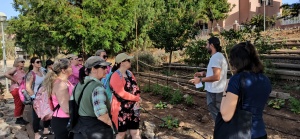
Training activities
Day 1 – Consumption reduction
- Introduction to the course
- Ice breaking: Empathy and body language
- Concept mapping: responsible/sustainable/green/ethic consumption
- Group reflection based on fact-based information and statistics
- Group dynamics: Getting out of your comfort zone
- Practical workshop: Make your own reusable bag
- Exchanging good practices on how to reduce consumption
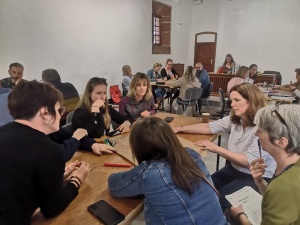
Day 2 – Changing consumption patterns
- Warm-up and mindfulness exercises
- Think-pair-share: What are our consumption patterns?
- Case study: Product life-cycle in fashion, furniture and home decor industry
- Concept mapping: fair trade, organic, free-range, ethical consumption, fair trade, fair labour conditions
- Group dynamics: Building trust in the group
- Group exercise: reusing and up-cycling vs recycling
- Video and group reflection: Zero Waste – packaging vs buying in bulk
- Teaching method: class challenge to reduce waste and consume differently
- Group reflection: What group challenge can I apply in my class to promote waste reduction?
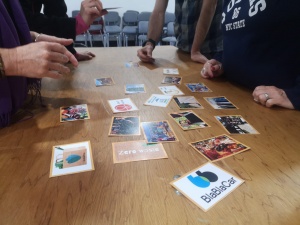
Day 3 – Nutrition
- Exercise: using all our senses (smell, taste, touch, listen and look at different objects)
- Organic food vs food packaging
- Local consumption and km0 food: How far do our food and goods travel to get to our house?
- Case examples: community/urban gardens, permaculture farms and consumption groups
- The nutritional value of my food
- Meat reduction: legumes, vegetables, seeds and fruit-based nutrition
- Practical activity: Green smoothies
- Group reflection: What habits can I change regarding my nutrition?
Day 4 – Collaborative consumption
- Warm up and group division exercises
- Concept mapping: sharing economy, collaborative consumption
- The importance of sharing underused resources (tangible or intangible)
- How traditional sharing, bartering, lending, trading, renting, gifting, and swapping is redefined through technology and peer communities
- Teaching through examples and case studies:
- Flea markets, second-hand shops vs Social media groups and apps
- Good exchange/free swapping: books, clothes etc.
- Transportation: Hitchhiking vs carpooling
- Tourism: Couchsurfing, WarmShowers, volunteer exchanges (Workaway)
- Work: coworking spaces
- Food waste restaurants/supermarkets selling surplus
- Alternative coins
- Group reflection: How can I implement collaborative consumption in my class?
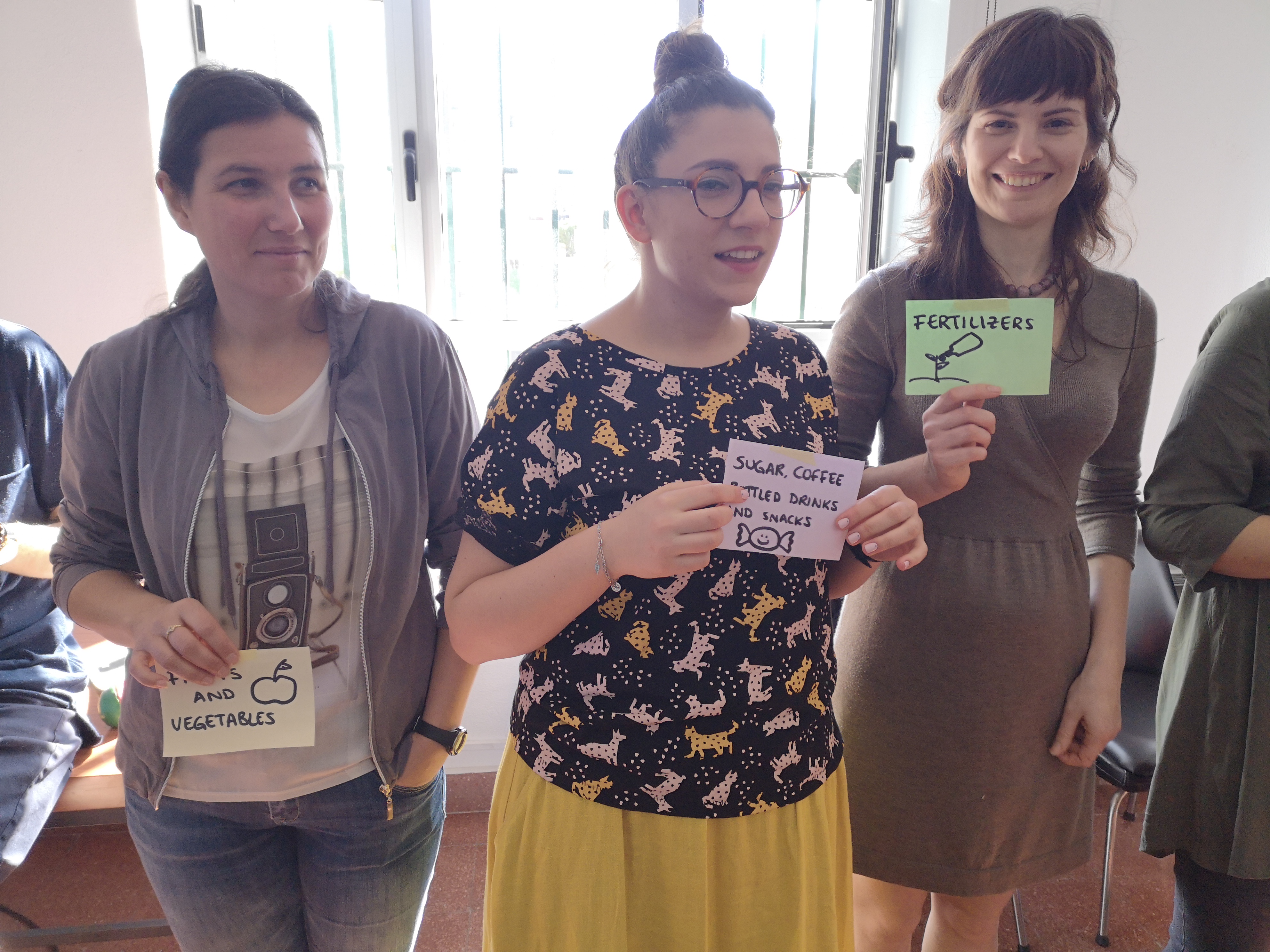
Day 5 – Networking and closing
- Energizer and quiz with Kahoot
- Group dynamics: Networking skills
- Open discussion on possible future collaborations and planning follow up activities
- Summary of key learning points
- Final course evaluation and feedback
- Validation of learning outcomes and handling certificates
- Cultural activity or guided visit (optional)
Methodology
We tailor our working methods based upon the participants‘ needs and professional profiles in order to ensure easier adaptability and application of the tools to the real life.
Our standard methodology is based on active learning and it is highly participative and practical. We have a hands on approach that comprises group dynamics, exercises and simulation exercises and, for this course in particular, case examples method. Also, we use collaborative learning techniques to foster the exchange of good practices and collective learning.
Energizers, games and group dynamics are foreseen daily in order to ensure a positive energy and a cooperative learning climate in the group.
Group reflections and daily brief feedback sessions are planned to help adapting the learning programme to the specific needs of the participants.
We organize optional social and cultural activities in order to give the participants the opportunity to get to know the Canarian and Spanish culture as well as to do some professional networking and exchange good practices.
Certification and validation of learning outcomes
- Certificates of attendance
- Support with the Europass mobility certificates – to be issued by the applicant’s National Agency
Upon request, we also provide educational centers with additional documents that are required to certify the presence to the course and the competences learned. For example, we provide photos of the training course that can be used for dissemination purposes.
Pre-register to our course!
Write us some details about your project idea. How many participants do you want to send? What are the profiles of the teachers/staff interested in the course?
